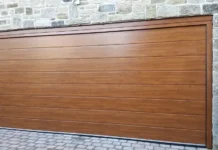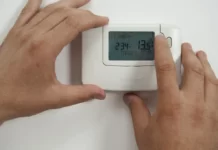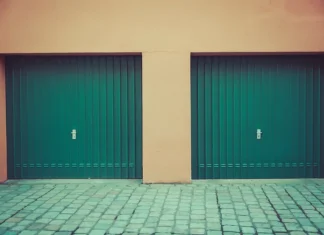Your home is your haven. Every day, you use it to get a mental, physical, and emotional respite from the stresses of day-to-day life. More importantly, it protects you, your family, and your belongings from the threats of the world. At least, it’s supposed to.
If your home isn’t properly secured and protected, all the things you use it for will be compromised. You can’t trust it as a haven, because you’ll constantly have to worry about break-ins and unwanted guests, and in the worst-case scenario, you can find yourself in a dangerous, life-threatening situation.
So, how to secure your home and truly make it the haven you think it is?
Let’s get into it.
It’s More Than Just Locks
Securing your home is as easy as slapping a few locks on your entryway doors and calling it a day, right? Wrong!
Ensuring your entryways have lock systems installed is key to securing your home, but that’s just a small fraction of the overall picture.
Securing your home properly has to take all possible entrances, key parts of your home’s interior, and your ability to gather information about potential threats into account.
This all turns into something far more complex than just installing a couple of locks, and in a lot of cases, a professional security locksmith is required to truly ensure your home is safe.
Lock Placement and Quality
While they’re not all you should worry about, locks are fundamental to your home’s security. However, they need to be placed properly, and the quality of the locks account for a large factor in the security of your home.
Here’s a list of the places locks should be installed. We’ll discuss them in detail shortly.
- Entryways
- Sub-buildings such as garages, sheds and pool houses.
- Windows
- Room entrances
- Key storage locations
Entryways, Secondary Buildings, and Windows
These all fit into one category. The locks on these parts of your property will prevent or discourage access; minimizing the need for interior lock placements.
Obviously, having locks on your home’s entryways is important. That’s what most people cover. However, windows are often forgotten, and they’re prime entrances for thieves and malicious criminals since they’re either devoid of locking mechanisms, or homeowners tend to get a bit lazy about engaging their window locks when needed.
Secondary buildings are also frequently ignored, but if you don’t want your lawnmower or bikes stolen from your shed, it’s important to give these locations the same treatment as your house.
Rooms and Key Storage
Locking rooms and key storage locations works as a secondary defense. If your entryways are compromised, these locks allow you to prevent access to rooms with high-value items in them, and locking things such as desks, safe boxes, and gun cases can act as a final line of defence to keep thieving hands off things you absolutely cannot afford to lose.
Secondary locks also provide you with defence in more sinister situations. If a violent individual can access your home, interior locks on all of your rooms give you a way to block yourself and your family off from the individual while waiting for the authorities. This may sound like the plot of a copy-and-paste horror movie, but in reality, situations like that happen far more than you think.
Lock Quality
You don’t need a high-tech digital lock with biometric scanning technology to protect your house. Sure, it’ll work, but it’s overly complicated and completely unnecessary. Going the opposite route, and buying the cheapest locks possible, will leave you with unreliable locks most thieves can bypass easily.
Go for high-security locks that match standard residential requirements while utilizing the latest locking technology available in their category. This will make it difficult for even the most experienced criminals to pick or break your locks, but it won’t make your home look like you’re trying to protect a top-secret lab or some other crazy nonsense.
That being said, if your home is equipped with the latest smart home technology, you may be interested in adding a smart lock. There are many available on the market these days with reasonable pricing.
Non-Locking Security Options
As we said, locks are essential, but they’re not everything you need to provide top-notch security to your home. While there are a lot of options on the market, there are two non-lock security items you need to focus on, namely camera systems and alarms.
Camera Systems
Gone are the days of fuzzy CCTV cameras that could barely get a good picture of a criminal’s outline; let alone their face or other identifying features.
Now, the residential market has access to crystal-clear video technology with motion-activated recording, video feeds you can view from anywhere on your phone, and other high-tech features. More importantly, these systems are fairly affordable and long-lasting. Thus, you won’t have to invest too much into getting a great system installed.
A camera system with all the latest features will let you monitor activity in and around your home remotely, and you can react more quickly to threats; minimizing their ability to harm you or take your property.
Remember, it usually takes a minimum of 15 minutes for police to respond to even the direst calls. The faster you can contact them, the more likely they’ll catch the criminal in the act rather than cleaning up and starting an investigation.
Alarms and Alarm Placement
Cameras with real-time remote viewing are great, but they do require you to react before anything meaningful is done to stop a situation. If you’re asleep, or your phone died while you were at work, you won’t be able to respond despite your fancy camera system.
This is where alarms come in. These are affordable options, and they automatically trigger a response by police; even when you’re unaware there’s a reason to call.
However, placement is key with alarms. You need your alarm system to cover your home’s entryways and windows, and if you can shell out a few extra bucks for motion technology throughout your home’s interior, your alarm system can keep track of intruders as they move; providing real-time updates that aid police and potentially yourself. Granted, some camera systems come with this technology, too.
Your alarm should be loud to immediately discourage further action by the intruder, and it should automatically relay a signal to the police or third-party security service that will contact the police immediately. Everything beyond that is optional.
Consult a Professional Locksmith
When you hear the term “locksmith” you probably think of someone who can help you get back into your home if you lose your keys. They do that, but they’re also trained security professionals who know what it takes to secure your property.
If you want your home to be as secure as possible, contact a professional locksmith for their experienced opinion and industry knowledge.












